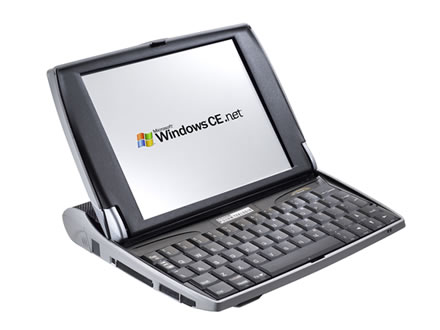Sponsored by BoysStuff.co.uk


Netbooks – What you need to know before you buy Comparing laptops and notebooks, pros and cons
Are the days of the Laptop numbered?
As the world becomes a smaller place, the Internet grows ever larger and more resourceful. Today, we cannot survive without the Internet at our disposal for a very long time. Hence, vast arrays of handheld solutions which promise Internet access are available. While all of them have their uses, Internet on handheld devices is hardly as rich and resourceful as that on a full-fledged PC. Mobile browsers come with limited support, especially for features like embedded video and animation, thus leaving your web experience half-baked. In today’s age of extensive mobility, even the much vaulted laptop looks like a lumbering giant. The solution? Enter the Netbook world.
As of today, Netbooks are little more than ultraportable laptops. As the name suggests, it is best suited for surfing the net on the go along with other lightweight allied tasks. It is not fundamentally designed to be a multimedia center or an office workstation and most Netbooks reflect that.
Screen size for Netbooks is generally 8-9 inches. Screen resolution varies according to make and model and is available up to a respectable 1024x600. While the smaller form factor has definite portability advantages, the smaller keyboard and touchpad area can be a real pain for people with large hands. Connectivity in Netbooks is paramount and hence it generally comes with a whole array of USB connectors, an Ethernet connection and the latest available wireless technology. External display devices maybe supported through DVI/S-Video. Optical drives are optionally available.
Under the hood, the processor for Netbooks needs to be a frugal drinker of electricity. As of today, three different platforms are available. The reliable but ageing VIA C7D (HP 2133 miniNote), the popular Intel Atom processor, and the mixed-bag options offered by AMD (Sempron 2100+, Turion64 or the puny Geode LX800). Memory typically comes in the 512MB-2GB range. Storage may be in the form of a SSD (solid state drive) or a simple hard drive. While SSD’s are faster, compact and consume less power, they also add a lot to the price tag of Netbooks. As a compromise, some vendors ship their units with a limited capacity (2-4 GB) flash memory which usually contains the operating system, and a standard hard drive for storage.
In terms of software on your Netbook, you can go for Windows XP or Linux. Linux distributions like Ubuntu 8.10 are an excellent choice as they work very well out of the box. Windows Vista performance is generally poor as they require more power.
A checklist while getting Netbooks can be as follows:-
• Power efficiency- The Atom offers the best bet, but the 945 chipset it ships with is old. The newer US15 chipset is expected to be out soon. Keep a lookout
• Memory- 512MB maybe adequate but you are better off with 1GB+
• Video – Look out for the upcoming Ion(Atom+ GeForce 9400) platform for NVidia with HD Playback capabilities
• Hard Drive –SSD’s offer performance and efficiency at higher prices
• Price- can be bought within $500 in general
Most major brands like Dell, HP, Compaq and Acer have Netbooks in their lineup. The ASUS Eee Pc, the first one launched, is also a decent choice. What you have to decide is whether you actually need a Netbook. While it offers portability, a rich web experience and lightweight computing capabilities, it is not really a replacement for a laptop or a phone and in general have failed to find a market niche till date.

| © RIYAN Productions |

